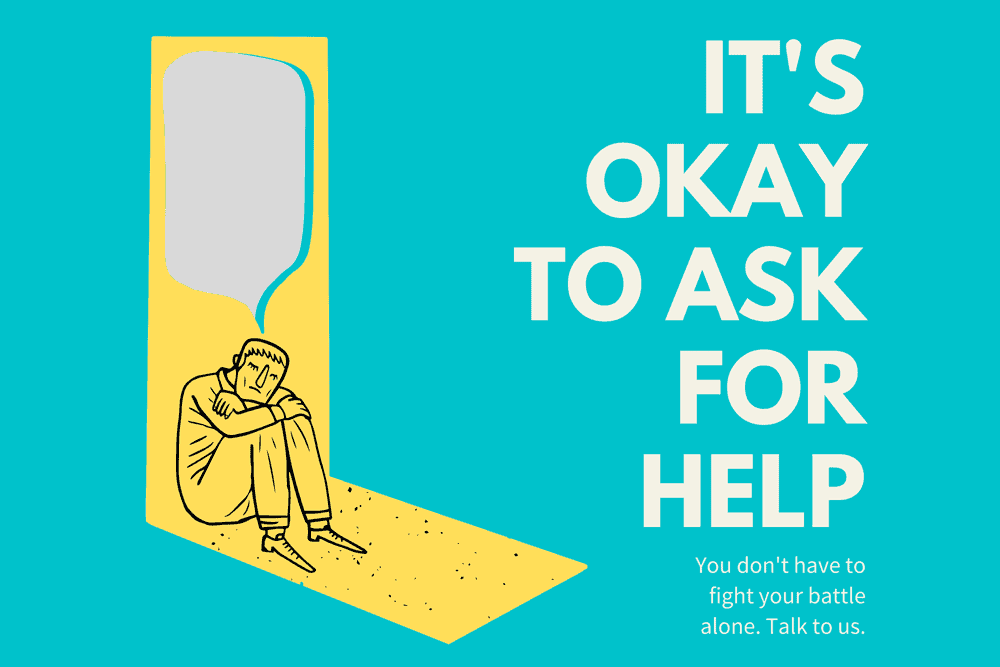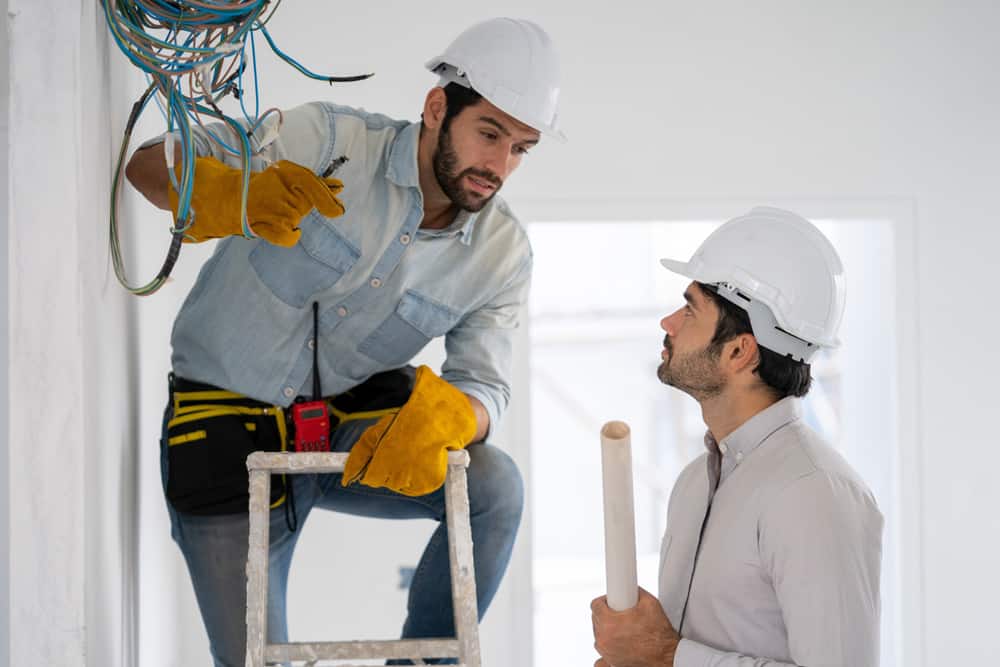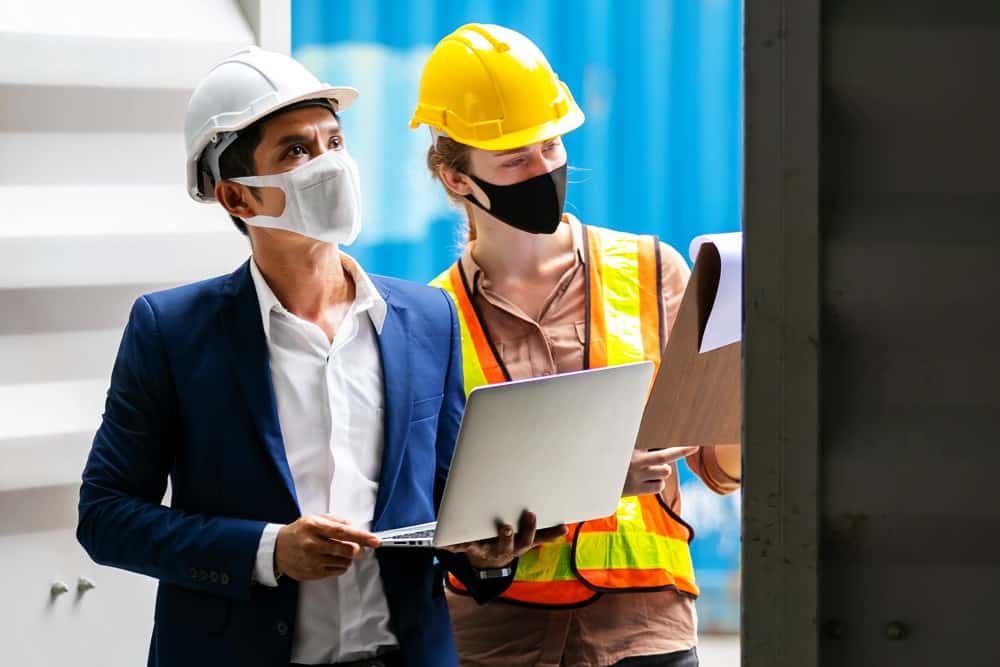
Is there a mental health problem in the construction industry? Yes, there is.
Labourers, builders, foremen, site managers –construction workers are often expected to be strong and capable. They are tasked with lugging around heavy items, operating heavy plant and machinery and laying mortar. So, when we hear of incidents in the industry, the attention is often on issues such as respiratory health, musculoskeletal injuries and falls from height.
But mental health in construction is, and remains, a serious issue.
With suicide killing more people than falls from height, the mental wellbeing of construction workers definitely needs to be highlighted, to break the stigma, increase awareness and improve support.
This blog will look at the impact of mental health on construction workers, how to support them and ways to break the stigma.
The State of Mental Health in Construction
Let’s look at some stats. The construction industry accounts for 6% of the UK workforce. Of these, there were around 21,000 work-related cases of stress, anxiety and depression in 2019/20, according to a Labour Force Survey.
According to another survey by international recruitment consultancy Randstad, some 34% of construction workers experienced a mental health condition over a one-year period. Sadly, a whopping 73% of these employees also felt their employers were not recognising the early signs of mental health problems.
The latest figures from the Office for National Statistics provide more harrowing data, revealing that 507 construction workers committed suicide in 2021 – an increase from 483 in 2020. Nearly the majority of those who took their own lives were male. This makes suicide amongst construction workers more than three times higher than the national average.
Contributors to Poor Mental Health In Construction
So, why is mental health in the construction sector a larger issue than elsewhere and what factors play a role in mental health in this industry? With any job, there are various factors that have been shown to impact mental health negatively. In construction, these factors are often compounded. They include:
- Long working hours
- Working in extreme weather conditions
- Exhaustion due to physical labour
- Chronic pain due to physical injuries
- Job insecurity
- Higher levels of alcohol and substance abuse
- Highly competitive, male dominated workplace culture
- Feeling unable to ask for help
Imagine all of the above playing on your mind every time you go to work. This, alongside the knowledge that what you do to make a living comes with very real risks of serious and life changing injuries. It’s no wonder that construction workers may suffer from mental health problems.
How to Combat the Mental Health Crisis in Construction
Firstly, there are no overnight, quick fixes. Mental health continues to be a difficult subject to talk about, even outside of the construction industry, but great strides are being made. That said, there is a long way to go and, in an industry that traditionally has struggled with having an open and communicative culture, the task can seem daunting.
So, what can be done, now?
Increased Awareness
Awareness about mental health in the industry needs to be ramped up. More visibility and more conversations about the importance of mental health in construction will bring it to the forefront and go some way to reducing what is referred to as the ‘silent epidemic’.
There are many routes you can take to increase awareness. You can acknowledge and take part in national awareness campaigns such as Mental Health Awareness Week, held in May each year. Or, why not run an in-house poster campaign with employees and senior management? Get them talking about how they deal with their mental health. Involving workers will make campaigns more impactful.

Safe Spaces
Create a safe environment where construction workers feel comfortable to talk about what they are experiencing mentally. Safe spaces are free of judgement, with strategies in place to support employees when/if they choose to speak on their mental health. Toolbox talks, team meetings and 1:1’s, are all opportunities to create safe environments where employees can talk confidentially.

Resources
Resources need to be in place such as an Employee Assistance Programme and medical insurance benefits that include mental health support. Provide contact details for counselling services, mental health organisations such as Mind and Mates in Mind, so that employees can reach out to them in their own time.
Having a trained Mental Health First Aider on site, can go far in providing your workers with someone they know they can turn to.

Training
Putting the mental health of team members into the hands of a supervisor or manager can be quite daunting. They may also see it as yet another task on their ever-increasing job description. It’s essential though that they are adequately trained. After all, they are often the first point of contact for those they manage. There are a range of courses that they can complete to provide them with the know-how on supporting colleagues who are experiencing a mental health crisis.
Lead by Example
Often there is a detachment from construction workers on the ground and senior management/leadership. They seem to live completely different working lives.
Often those on the ground feel unseen and unheard, so it’s really important that when working on combating the stigma of mental health in construction, senior management are not only agreeing to new initiatives but leading by example. This can be getting out and actually talking to construction workers about mental health and what is in place to support them.

Nothing beats a personal anecdote. While senior management don’t have to divulge everything that they have experienced, a brief conversation on how they may have overcome situations that were mentally challenging or help they may have sought, could encourage an employee to take steps to get help too.
How Can You Change Things?
Due to the nature of the role and the culture that has prevailed in the industry, poor mental health is a huge issue in construction. However, there are numerous ways for organisations and individuals to drive change.
Providing Mental Health Awareness training will ensure that everyone recognises that poor mental health is a hazard. And, just like any other hazard on site, we must control for it and look out for one another.
Managers and senior leadership can do well by providing methods of support, as well as striving to reduce the stigma around mental health while encouraging a culture of openness. Training up volunteers to become mental health first aiders, increases the resources available to workers.
It’s important that we all recognise that mental health issues don’t need to be hidden away. We all have mental health, and we all struggle from time to time. So, we need to ensure we all have the help we need when we need it and the confidence to ask for it.
About the author(s)






















































































































































































































































































































































































































































































































































